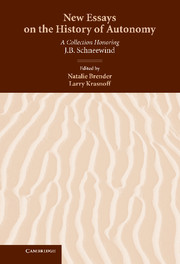9 - Trapped between Kant and Dewey: The Current Situation of Moral Philosophy
from PART TWO - AUTONOMY IN PRACTICE
Published online by Cambridge University Press: 24 July 2009
Summary
In recent decades, anglophone philosophy professors have had a harder and harder time explaining to their fellow academics, and to society at large, what they do to earn their keep. The more specialized and professionalized the study of philosophy becomes, the less respect it is paid by the rest of the academy or by the public. By now it runs some risk of being ignored altogether, regarded in the same way that classical philology is, as a quaint, albeit rather charming, survival.
This problem is less acute, however, in the case of moral philosophy, which is the most visible and generally intelligible of the various philosophical specialties. But even moral philosophers are hard pressed to explain what they think they are doing. They need to claim an ability to see more deeply into matters of right and wrong than most people. But it is not clear what it is about their training that permits them to do so. People who have written their Ph. D. dissertations in this area of philosophy can hardly claim to have had more experience with difficult moral choices than most. But what exactly can they claim?
A familiar sort of answer to this line of questioning was given by Peter Singer twenty-five years ago in a much-discussed article in the New York Times Magazine. The article was called “Philosophers Are Back on the Job.” Singer thought of himself as bringing glad tidings.
- Type
- Chapter
- Information
- New Essays on the History of AutonomyA Collection Honoring J. B. Schneewind, pp. 195 - 214Publisher: Cambridge University PressPrint publication year: 2004

